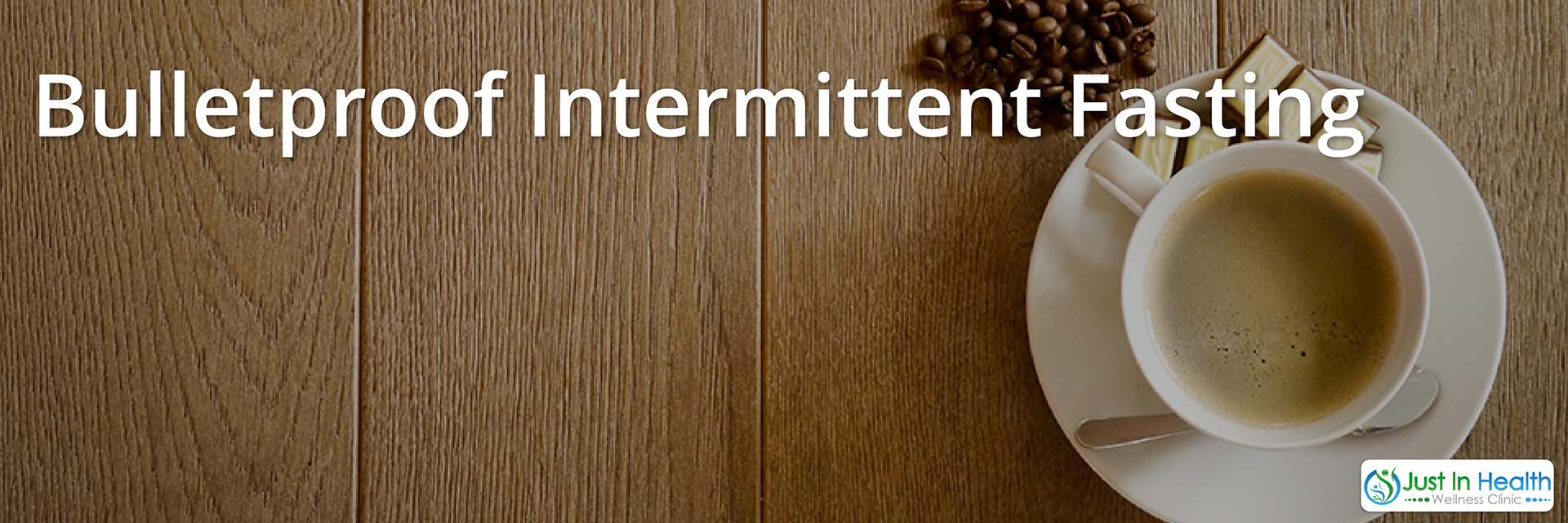

By Dr. Justin Marchegiani
What's the deal with intermittent fasting? Intermittent fasting is a very cool modality that involves avoiding calorie intake for about an 18 to 20 hour period. The best times to do intermittent fasting would be after you finish your dinner the day before, let's say around 6 p.m. to 7 p.m. When you wake up the next day, you would skip breakfast, and you would continue going without food until somewhere between 2 p.m. and 4 p.m. This would give you a solid 18 to 20 hours of fasting.
Intermittent fasting has many great benefits. One of these benefits is cellular autophagy. Cellular autophagy is a process by which your body recycles protein. Some of the benefits of intermittent fasting include longevity, increased insulin sensitivity, neuroprotection, improved mental clarity, and an increase in anabolic hormones (hormones that help rebuild your body).
The nice thing is that when you're fasting, your body is increasing its production of ketones. Ketones are the breakdown products of fat, which your body uses for energy. They can also help suppress your appetite during fasting. Many people think they may be starving during an intermittent fast, but with the ketone production, your body's hunger pangs are kept in check.


Many people shouldn't be intermittent fasting, especially if they have problems with blood-sugar stabilization. I see many individuals, especially female patients, who are hypoglycemic. Certain people may have a very difficult time stabilizing blood sugar, to the point where their blood sugar actually drops very low, to the point where they feel jittery, shaky, and anxious.
Your adrenal glands have to stabilize your blood sugar during periods of fasting. If your adrenal glands are not working properly, you end up throwing your body into a more stressful situation where your adrenals have to produce extra secretions of adrenaline to keep your blood sugar in a normal range.
Click here to know if you can benefit from intermittent fasting.
There is a process called gluconeogenesis, which is where your body converts amino acids from protein to glucose. The hormone that facilitates this process is cortisol. If your cortisol function is imbalanced due to adrenal fatigue, your ability to use gluconeogenesis as a means of blood-sugar stabilization is decreased. The only way you can bring the physiology back into balance is by going on an adrenal-healing diet and addressing lifestyle stressors, like sleep and emotions, as well as any hidden infections. Going on an adrenal program that uses specific supplements that support the adrenals helps decrease the recovery time significantly. I find healing someone’s adrenal fatigue is 50% managing physical, chemical, and emotional stress and 50% following a customized adrenal-support program (1).

As long as you have enough protein in your diet, (my minimum recommendation is 0.5 grams per pound of lean body weight), you will be able to keep your muscle mass when you go into a gluconeogenic state.
My recommendations for intermittent fasting have always been that you need healthy adrenal and thyroid function to truly benefit, without causing extra collateral damage. Research has shown that low-calorie diets decrease thyroid-hormone production. So if you already have low thyroid-hormone production, throwing your body into a fasting state will decrease your thyroid-hormone production even more.

Before you take advantage of intermittent fasting, get your adrenal glands assessed via a salivary cortisol rhythm and also run a complete thyroid-hormone panel, including TSH, free T3, total T3, total T4, free T4, T3 uptake, and thyroid antibodies. One of the biggest stressors put on your endocrine system is to stabilize your blood sugar, so before you add more stress to your body, make sure you can handle it first.
Intermittent fasting 1 to 2 days a week can be a great start! I recommend choosing days that aren't very stressful. Your adrenals are always doing their best to handle everyday stress; the more stress they are under, the less ability they have to multitask in regards to managing inflammation, producing sex hormone, and stabilizing blood sugar. Choose a nice Saturday or Sunday that is low-key where you can kick back and relax, go for a walk, watch a movie, or do any other non stressful social activities.

I am a big fan of Bulletproof Intermittent Fasting. Using a high-quality coffee source, such as Bulletproof coffee (that doesn't contain mycotoxins), with grass-fed butter and MCT oil can be a great way to give your body an extra supply of healthy fats, which will allow your body to produce more ketones for fuel (these fats are also anti-inflammatory). Using bulletproof intermittent fasting will allow your body to operate with a higher level of energy, providing your body with more ketones to burn, while at the same time stimulating cellular autophagy and its other healthy antiaging benefits.
Click here to know more about Bulletproof Intermittent Fasting
References:
1. Cortisol increases gluconeogenesis in humans: its role in the metabolic syndrome.